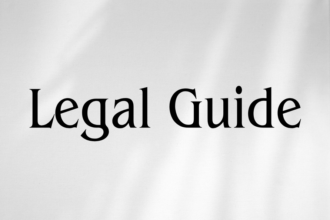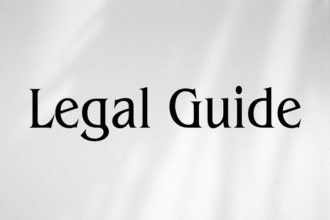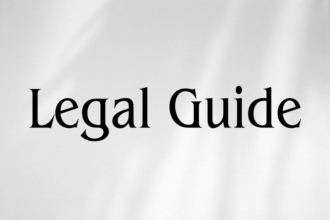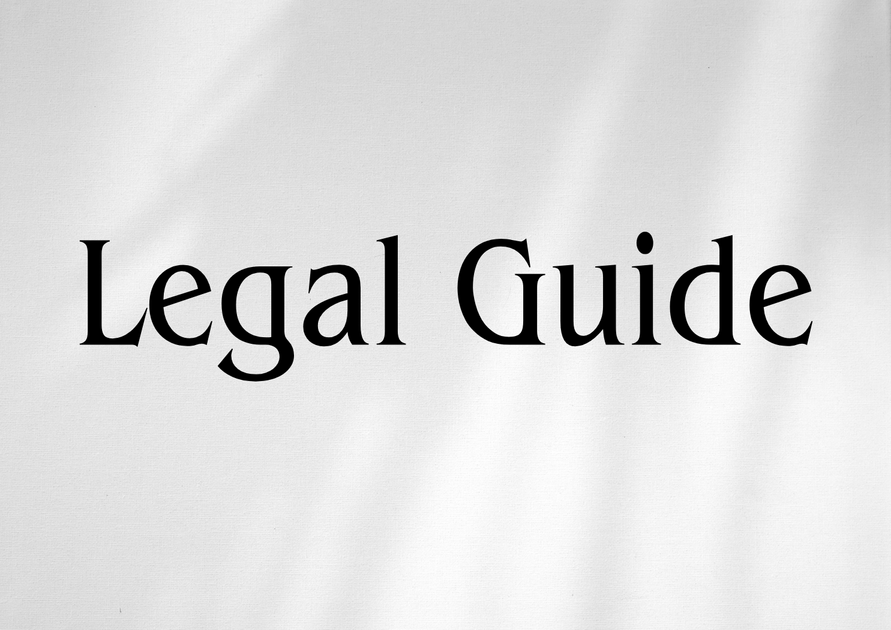Introduction: Redefining Intellectual Property in the UAE AI Era
The rapid advancement of artificial intelligence (AI) technologies is fundamentally reshaping the global landscape of intellectual property (IP) rights. Nowhere is this more profound than in the United Arab Emirates (UAE), where digital transformation stands at the heart of national strategy and vision. As the UAE aims to drive innovation and attract leading businesses, understanding the legal framework governing AI-generated creations becomes not just advantageous, but essential.
Recent legislative updates, including significant revisions to Federal Law No. 38 of 2021 on Copyrights and Related Rights and Federal Decree-Law No. 11 of 2021 on Industrial Property, are redefining the rules of engagement for innovators, businesses, and legal practitioners in the Emirates. This article provides an expert analysis of how UAE law is evolving to meet the challenges and opportunities of AI-driven innovation, alongside practical guidance for ensuring effective legal compliance and risk mitigation in this fast-changing environment.
This discussion is critical for UAE-based businesses, multinational corporations, HR leaders, innovators, and legal professionals looking to safeguard IP assets, ensure compliance with the latest decrees, and capitalize on AI technologies without exposing themselves to legal risks.
Below, our comprehensive guide navigates through the latest UAE legal frameworks, highlighting actionable strategies and professional insights regarding IP in the age of AI.
Table of Contents
- UAE Legal Framework for Intellectual Property and AI
- Key Provisions Governing IP and Technology
- Comparative Analysis: Old and New UAE IP Laws
- AI and Copyright: Authorship and Ownership Implications
- Patent Protection for AI Inventions in the UAE
- Trade Secrets and Confidentiality in AI Development
- Enforcement Challenges and Legal Remedies
- Risk Management and Compliance Strategies
- Case Studies and Hypothetical Scenarios
- Best Practices for Organizations and Business Leaders
- Conclusion: A Look Ahead to Future UAE Developments
UAE Legal Framework for Intellectual Property and AI
1. Foundational Legislation
The protection and management of intellectual property related to AI in the UAE is governed primarily by federal laws, updated to address new technological realities. Key legislative instruments include:
- Federal Law No. 38 of 2021 on Copyrights and Related Rights (amending Federal Law No. 7 of 2002)
- Federal Decree-Law No. 11 of 2021 on Regulation and Protection of Industrial Property Rights
- Federal Law No. 15 of 2020 on Consumer Protection (for software and data product quality)
- Resolution and guidelines by the UAE Ministry of Economy and Ministry of Justice
The UAE is also a signatory to major international treaties, including the Paris Convention for the Protection of Industrial Property and the Berne Convention for the Protection of Literary and Artistic Works, integrating global standards into its domestic legal regime.
2. AI Implications in Current UAE Legislation
While UAE IP statutes do not yet explicitly define AI-generated works, they provide the essential structure for determining who owns and controls the rights over AI-generated outputs. The evolving jurisprudence, supported by commentaries and Ministerial clarifications, is trending toward ensuring human authorship as a core requirement—but this is a subject of ongoing debate and expected future reform.
Key Provisions Governing IP and Technology
1. Copyright Law (Federal Law No. 38 of 2021)
This law covers an expansive definition of “works” including computer software, databases, and digital content. However, under Article 3, a work must reflect personal intellectual creation, raising questions about the copyrightability of purely AI-generated content.
2. Industrial Property Law (Federal Decree-Law No. 11 of 2021)
This law protects patents, utility models, industrial designs, and trade secrets. Notably, it introduces modernized patent protection mechanisms, with explicit provisions around software patentability and inventions utilizing AI methodologies—provided they meet the novelty and inventive step requirements demanded by the law.
3. Electronic Transactions and Cyber Law
Technologies involving AI often rely on electronic communications and processing of personal data, invoking compliance with Federal Decree-Law No. 45 of 2021 regarding the Protection of Personal Data, as well as electronic transaction regulations. These intersect with IP when AI systems utilize or generate protected data sets or outputs.
Comparative Analysis: Old and New UAE IP Laws
| Aspect | Old Law (e.g., Federal Law No. 7 of 2002) | Updated Law (Federal Law No. 38 & Decree-Law No. 11 of 2021) |
|---|---|---|
| Definition of Copyright Works | Narrowly defined; unclear on digital/AI works | Broader, includes digital content, computer software, some AI-generated works if attributed to a human |
| Software Patentability | Limited, restrictive | Explicit mechanisms enabling broader patent protection for software-implemented inventions |
| Enforcement Powers | Basic civil remedies | Enhanced penalties, expedited injunctions, administrative enforcement |
| Membership in International Treaties | Partial adherence | Full adherence (e.g., Berne, Paris), local law aligned to international practice |
Visual Suggestion: Place a flow diagram illustrating how AI-generated works are assessed for protection under UAE copyright and patent laws.
AI and Copyright: Authorship and Ownership Implications
Authorship Under UAE Law
The concept of authorship remains central to copyright protection, with Article 3 of Federal Law No. 38 requiring that the work reflect a distinct, human intellectual contribution. Currently:
- Works solely generated by autonomous AI likely do not qualify for copyright protection.
- Works where AI is a tool, but where a human defines the creative parameters, can be protected and attributed to the human operator or entity.
- Employers commissioning AI-generated works should secure clear written agreements defining ownership and usage rights.
Ownership by Employers and Contractors
Where an employee or consultant uses AI tools during the course of employment to develop software, data sets, or creative works, Article 10 of Federal Law No. 38 (2021) generally vests ownership in the employer, unless expressly agreed otherwise. This highlights the need for robust IP clauses in employment and consultancy agreements.
Licensing and Assignments
Recent amendments have clarified the procedures for licensing, assignment, and commercial exploitation of digital and AI-enabled works—requiring registration with the Ministry of Economy for certain types of transactions.
Patent Protection for AI Inventions in the UAE
Patentability of AI-Related Inventions
Federal Decree-Law No. 11 of 2021 substantially expanded the definition of patentable subject matter but maintains strict standards:
- Inventions must be novel, involve an inventive step, and be capable of industrial application.
- AI algorithms as such, or mathematical methods, are generally not patentable. However, AI-implemented inventions that provide a technical solution to a practical problem are eligible.
Ownership and Inventorship Concerns
The prevailing approach requires a natural person or entity to be named as the inventor/applicant. AI cannot be listed as a legal inventor at this stage, in line with UAE practice and global standards.
Registration Processes and Best Practices
- Applicants should provide detailed documentations, including source code, use cases, and technical diagrams wherever possible.
- Early engagement with the UAE Ministry of Economy’s intellectual property directorate is recommended for complex or high-value AI inventions.
- Document all steps of AI system development to demonstrate human contribution and inventive involvement.
Visual Suggestion: A checklist graphic for AI patent application requirements in the UAE.
Trade Secrets and Confidentiality in AI Development
Given the collaborative and data-driven nature of AI projects, companies in the UAE increasingly rely on trade secret protection for proprietary algorithms, training data, and methodologies.
Legal Protections for Trade Secrets
Article 39 and related provisions of the Industrial Property Law protect undisclosed information with commercial value, provided reasonable steps are taken to maintain its secrecy:
- Informal IP assets are more vulnerable, underlining the necessity for technical and contractual safeguards.
- Declarations, NDAs, and access controls should form the backbone of internal compliance programs.
Practical Contracting Strategies
- Draft non-disclosure and non-use agreements that explicitly name AI algorithms and datasets as protectable assets.
- Limit exposure by restricting access to sensitive data to designated personnel and maintaining audit trails.
| Trade Secret Protection Requirement | Recommended UAE Practice |
|---|---|
| Defined Confidential Information | Enumerate algorithms, program logic, datasets, AI-training outcomes |
| Access Limitation | Role-based access controls and regular monitoring |
| Employee Obligations | Clear contractual duties and post-employment restrictions |
| Remedy Clauses | Equitable relief (injunctions) and pre-agreed penalties in contracts |
Enforcement Challenges and Legal Remedies
UAE courts and regulatory authorities have strengthened IP enforcement in the digital era, yet policing infringement in relation to AI outputs remains complex. Issues include:
- Proving substantial similarity or unauthorized use of AI-generated works
- Scope of liability for platform providers and downstream users
- Use of forensic evidence and technical experts in IP disputes
Remedies Available Under UAE Law
- Preliminary and permanent injunctions
- Damages (statutory and actual)
- Administrative take-down actions with regulatory bodies (e.g., Ministry of Economy, Telecommunications Regulatory Authority)
Penalties Comparison: Non-Compliance Consequences
| Violation | Pre-2021 Penalty | 2021-Onwards Penalty (per updated laws) |
|---|---|---|
| Copyright Infringement | Fine up to AED 10,000 | Fine up to AED 100,000; imprisonment for grave violations; asset confiscation |
| Trade Secret Misappropriation | Limited damages | Substantial civil and criminal penalties; mandatory restitution |
| Patent Infringement | Low damages awarded | Damage claims plus cease-and-desist orders; reputational sanctions |
Visual Suggestion: A penalty comparison chart showing escalation in fines from old to new law regimes.
Risk Management and Compliance Strategies
Legal compliance is no longer passive. Proactive strategies are needed to navigate new rules; waiting for court intervention can impose significant operational and financial risk. Organizations leveraging AI should integrate IP compliance into their corporate governance frameworks.
Top 5 Strategies for IP Compliance in AI Projects
- IP Audits: Frequently review all software, datasets, and algorithms for third-party content or code.
- Employment Agreements: Clearly define IP ownership in staff and contractor contracts, with special focus on outputs co-developed with AI.
- Document Human Contribution: Maintain detailed records of human input within AI development, crucial for copyright claims or proving inventorship.
- Trade Secret Protocols: Implement technical protection and strict confidentiality agreements, particularly where AI systems are externally integrated or serviced.
- Regular Legal Training: Educate HR, IT, and technical staff on IP policies and UAE compliance expectations.
Visual Suggestion: A compliance checklist for AI and IP risk management in the UAE—useful as a downloadable resource for corporate teams.
Case Studies and Hypothetical Scenarios
Case Study 1: AI-Driven Artworks in an Emirati Gallery
Scenario: An Abu Dhabi-based art gallery commissions an AI tool to generate digital paintings based on Emirati cultural data. The gallery wishes to claim copyright ownership.
- Legal Issue: Under current UAE copyright law, the resulting artworks may not be protected unless a substantial human creative direction can be documented.
- Recommended Action: Design the AI process so human curators specify the inputs, themes, and final selection—demonstrating authorship.
Case Study 2: AI-Powered Supply Chain Solution
Scenario: A logistics tech company in Dubai develops a predictive logistics algorithm using open-source data and proprietary methods.
- Legal Issue: Patent protection is sought, but the algorithm must demonstrate technical character beyond mathematical rules.
- Recommended Action: Focus patent claims on the unique technical advantages provided (e.g., energy savings, reliability) and include human contributions in the invention disclosure.
Case Study 3: Misappropriation of Machine Learning Datasets
Scenario: A UAE start-up alleges a competitor accessed and used its proprietary annotated datasets to train a rival AI system.
- Legal Issue: Lack of documented contracts and internal controls weakens enforcement prospects under trade secret provisions.
- Recommended Action: Implement access limitations, register contracts, and initiate cease-and-desist proceedings—potentially escalating to the Ministry of Economy’s dispute resolution mechanisms.
Best Practices for Organizations and Business Leaders
Policy and Governance Recommendations
- Develop AI IP Policies: Ensure clear internal rules regarding contribution, attribution, and sharing of AI outputs.
- Contractual Clarity: Update employment and supplier agreements to address AI-specific IP allocation, licensing, and risk allocation.
- Data Compliance: Adhere to Federal Decree-Law No. 45 of 2021 for any personal data used in training or deploying AI systems.
- Engage Legal Counsel: Consult with experienced UAE legal professionals before launching AI-centric services or products in the market.
- Monitor International Trends: UAE businesses should stay informed on global developments, particularly the emergence of AI as a potential rights holder in some foreign jurisdictions.
Conclusion: A Look Ahead to Future UAE Developments
The intersection of AI and intellectual property is a frontier that is still evolving within the Emirates and globally. As the UAE continues to position itself as a regional tech hub, legislators are expected to further clarify, and potentially expand, the legal status of AI-generated works and inventions. Meanwhile, the current emphasis remains on human input, robust documentation, and strict compliance with formal IP processes.
For businesses, entrepreneurs, and legal teams, success in an AI-enabled landscape will depend on proactive risk management, forward-thinking contract drafting, and continuous alignment with both UAE and international standards. Those who implement the recommended compliance measures today will be best positioned to capitalize on tomorrow’s innovations while minimizing legal risk.
For further expert guidance or a bespoke compliance audit, organizations are encouraged to seek the support of qualified UAE legal consultants with deep AI and IP expertise.




